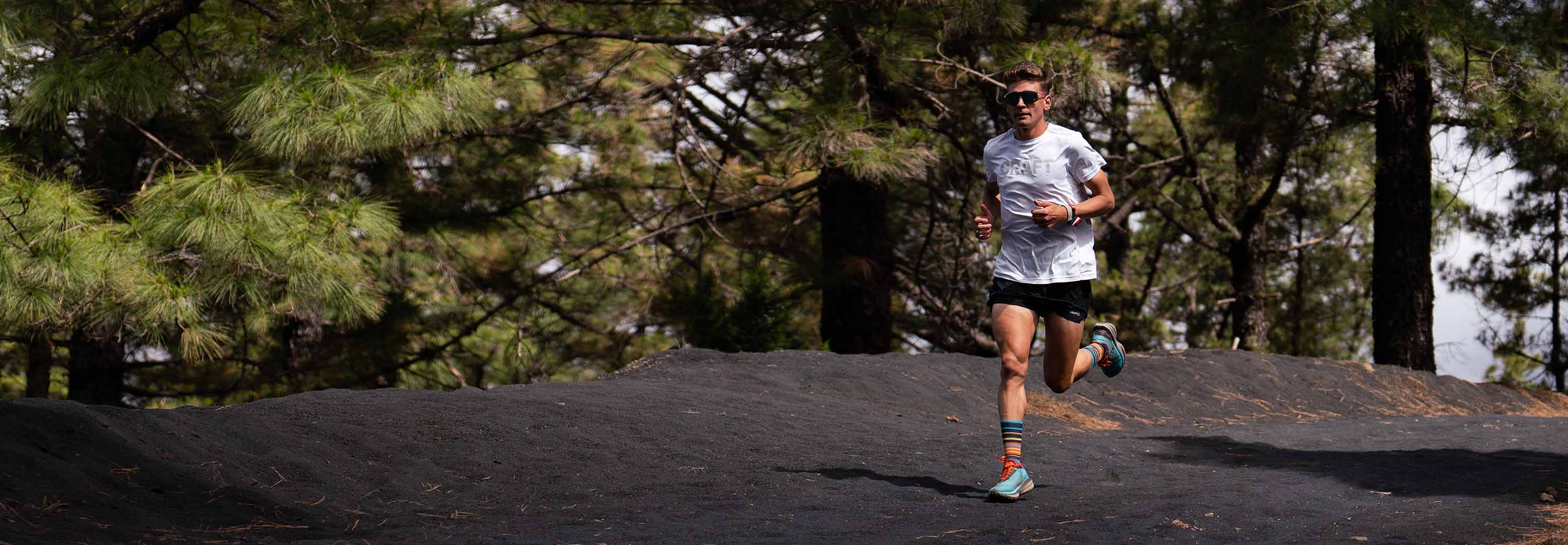Eat This / Not That
Our social media culture of flip-flopping over foods, supplements, and dietary trends is enough to nauseate even the most ironclad stomach.
Consume this - but only after 10pm. Juice that - make sure it’s certified organic.
Only eat red meat - from free range, grass fed cattle southeast of the Mississippi. You eat bread? You obviously don’t care about your body.
In 2003, our sports nutrition professor instructed the class, “Everything in moderation. Including moderation.” Simple yet powerful.
Despite what this age of Huberman-hacking influencers will yell from their online platforms, there is no such thing as a perfect diet. No one size fits all. No food that can only be consumed on your “cheat day.”
 Not only are many pop-diets based loosely on cherry-picked literature, they make us feel guilty about our personal choices or familial habits. Foods are labeled as ‘good’ or ‘bad.’
Not only are many pop-diets based loosely on cherry-picked literature, they make us feel guilty about our personal choices or familial habits. Foods are labeled as ‘good’ or ‘bad.’A non-judgmental view of nutrition can be helpful. No food is inherently good or bad. But with respect to individual needs and clinical implications, quality - and definitely quantity - should be considered.
In our house we have adopted the philosophy – eat enough all the time, too much occasionally, not enough never.
Despite good debate for and against particular dietary fads - something I am not qualified to opine on - a universal truth agreed on by clinicians is that chronic underfueling will lead to injury. Everything comes at a cost and cheating physiology in the short term - particularly in young athletes - will eventually be paid back. Often tenfold.
Our bodies are incredible. They can do and achieve remarkable things. The ultimate act of self love is to fuel them with nutrients they deserve.
 In a time where our days are increasingly packed, social demands remain high as ever, and financial compensation and commitments force many pay-check to pay-check, accessing - not just prioritizing - high quality foods at an affordable price isn’t an option. This will often lead to eating based on cost, convenience, and comfort. That does not mean eating a well balanced meal is impossible, but it may require additional planning, thoughtfulness, and time.
In a time where our days are increasingly packed, social demands remain high as ever, and financial compensation and commitments force many pay-check to pay-check, accessing - not just prioritizing - high quality foods at an affordable price isn’t an option. This will often lead to eating based on cost, convenience, and comfort. That does not mean eating a well balanced meal is impossible, but it may require additional planning, thoughtfulness, and time.After getting home from a long day, is devouring an entire box of cereal - without milk - and washing it down with a glass of wine quick? Happened so fast I don’t remember. Was it comforting? Ohhhh yeah. Could I have taken ten minutes to prepare a balanced meal? You betcha.
Basic nutritional goals:
Eat ENOUGH
- Whole foods when possible
- A veggie and protein at each meal
- Plenty of water daily
- Slow down
- Eat mindfully
- Treat-yo-self - moderation, remember
 Basic fueling around running
Basic fueling around runningWe train every morning secondary to life demands. This requires an early rise to get an entire meal 1-2 hours before each run - fasting is not allowed in our house.
Breakfast typically consists of a nut butter smeared over oatmeal, bagels, or pancakes and complemented often with a banana or granola bar. It is always washed down with fresh brewed coffee.
For runs longer than 90 minutes I carry water and GU Energy products throughout, typically with an aim of 60-90g/cho/hour. (This means that for a race like UTMB - that will take me 20 hours on a good day, 45 hours on a tough one - nutritional demands could require over one hundred and fifty gels!)
Immediately after every run, I drink water or an electrolyte mixture and then prepare a second meal. I aim to consume something with carbs and protein within 30 minutes of completion. When at home this will be a fully balanced meal, if in a location not close to home (I.e. 30 minutes plus) I pack a snack or preplanned meal to avoid delayed recovery.
For runs three hours or longer, I aim to increase the protein intake with whole foods or make a fruit smoothie with GU Engery’s protein recovery mix after completion.
 Basic fueling while traveling or racing
Basic fueling while traveling or racingFor some, traveling to foreign lands and experiencing new cuisine is a peak life experience. For others, when the comforts of their own kitchen is replaced with take-out, hotel buffets, or airline meals, this can induce anxiety and stress.
Ask yourself which category you fall into. If the former, have fun! If the latter, just as you did with training, prepare to manage the things you can control. If there is a special food, drink, or placemat you can’t be without, pack it - I always travel with Quaker instant apple-cinnamon oatmeal and almond butter.
It is important to remember that nothing is perfect, and everything is impermanent. You didn’t have pasta the night before? Don’t worry, there were plenty of carbs in that garlic bread. Someone misplaced your stroopwafel? Spread some honey on a cookie.
Don’t let seeds of doubt take root and suffocate the confidence you built through months of competency in training. When something does go against the grain - and as we say in racing, something always goes wrong - acknowledge the mishap, and then ask, “what am I going to do about it?”
Never let what-if kill what-is.

Remember that thing about influencers spewing conflicting recommendations? I’m just a pot calling the kettle black. Self study and experimentation is a wonderful thing. Read, listen, digest - look for credible sources (A systematic review or meta-analysis of all available randomized clinical control trials). Mark down what seems to work, toss out the strategies that don’t. Stick with what you like and be prepared to call an audible - ultrarunning nutrition is predictably unpredictable.
For those that have the means and desire, seek guidance from a licensed nutritionist - particularly one that specialized in sports - it will be worth the effort.
 Take Home
Take HomeIf we continue to hold ourselves to an impossible standard of perfection, there will be continued feelings of failure or guilt when we fall short of the impossible.
Nutrition - like ourselves - is perfectly imperfect.
The next time someone encourages you too ‘eat clean’, snarks, “you’re eating that?”, or you feel guilty that your diet has fallen short of the perfectly packaged idea sold to us from a trillion dollar food industry, remember to meet it with grace and be kind to yourself.
Everything in moderation. Including time spent with arm-chair nutritionists.







